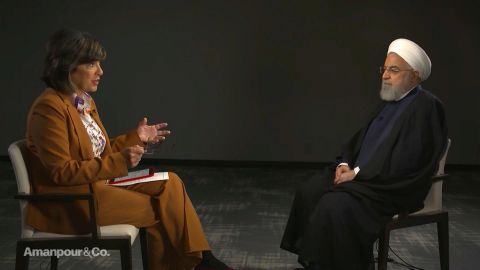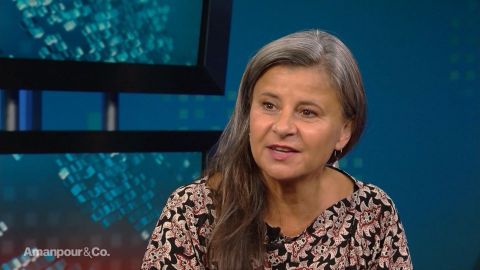Read Transcript EXPAND
CHRISTIANE AMANPOUR: Did you ever imagine that the perfectly normal act of a woman giving birth would be so incredibly viral all over the world and everybody just wants to talk to you about that?
JACINDA ARDERN, PRIME MINISTER OF NEW ZEALAND: No, no. Because obviously — you know, obviously, this is the norm for women who enter into motherhood. But I have to accept and I had to accept that when it comes to world leaders, it was real. And so, whilst I hope there will be a day when it isn’t worthy of coming, currently it is. And so, I accept that. But there will be a time.
AMANPOUR: You are the second. Benazir Bhutto of Pakistan was the first. But you’ve done something quite unprecedented that has gone viral. You took your little baby, Neve, into the General Assembly.
ARDERN: Well, actually, I would speak again. I came down from the podium to find that she was there on the general assembly floor and there’s actually an image that captures the moment when I see her there. And —
AMANPOUR: Where you pick her up and are hugging her?
ARDERN: Yes, yes. It was just delightful to see her there. I expected that she might be in another space. But I think probably what it speaks to is the fact that, you know, I am still breast-feeding. I have Neve near me most of the time. It’s just — it’s not always obviously that she’s in close proximity to me most of the time.
AMANPOUR: You talk about this openly, why, because you want to inspire working mothers, because you want to make it norm?
ARDERN: I want to normalize it. I want to normalize it. And I do think that if we want to make our work places permissive, more open, then we need to acknowledge that there are logistical challenges come with it. And I hope that, in part, just by being a first and being a bit more open, you know, which I accept brings vulnerability, by being a bit more open, it might create a path for other women.
AMANPOUR: And it’s quite extraordinary that your
AMANPOUR: Challenges that come with that. And I hope that, in part, just by being a bit more open, which I accept brings vulnerability, by being a bit more open, it might create a path for other women. And it’s quite extraordinary that your partner has agreed to be the house husband, so to speak, to take care of your daughter, and that must be really important as you do all your state duties, your head of government duties.
ARDERN: And what I consistently acknowledge is that I’m not doing anything special. Actually, I have a lot of assistance, I have a lot of help. The fact that Clark has the ability to be able to juggle his career and also be our primary caregiver makes all of this possible. But what has struck me the most is from the moment that we announced the way that we would make things work, the number of men and women who have said we did exactly the same thing, there isn’t a lot of discussions, I think, about something that has been happening over a number of decades. And we need to normalize that, too.
About This Episode EXPAND
Christiane Amanpour interviews Hassan Rouhani, the Iranian President; Federica Mogherini, High Representative of the EU for Foreign Affairs and Security Policy/VP of the EU Commission; and Jacinda Ardern, New Zealand Prime Minister. Hari Sreenivasan interviews comedian Tracey Ullman.
LEARN MORE



